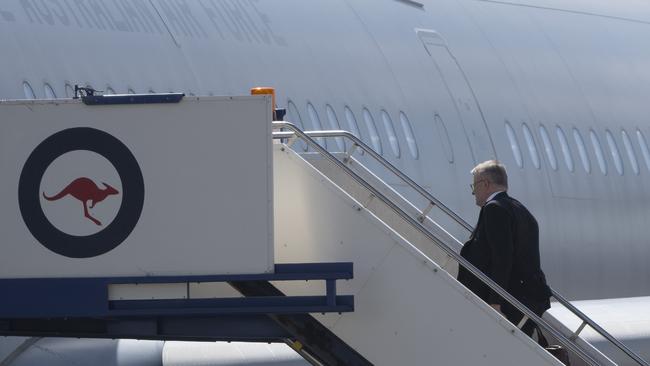
Four examples from late December expose Anthony Albanese’s malaise: failing to join an international fleet combating attacks on shipping in the Red Sea; a lost opportunity to provide Ukraine with helicopters no longer in Defence use; a direction-free meeting with New Zealand’s new Prime Minister, and; a keynote foreign policy speech in Sydney that wilted on delivery.
In several interviews last week, Albanese insisted a US request for naval vessels to protect shipping under threat in the Red Sea and Indian Ocean had not come from the US administration, only “a general statement was made by the US Navy”.
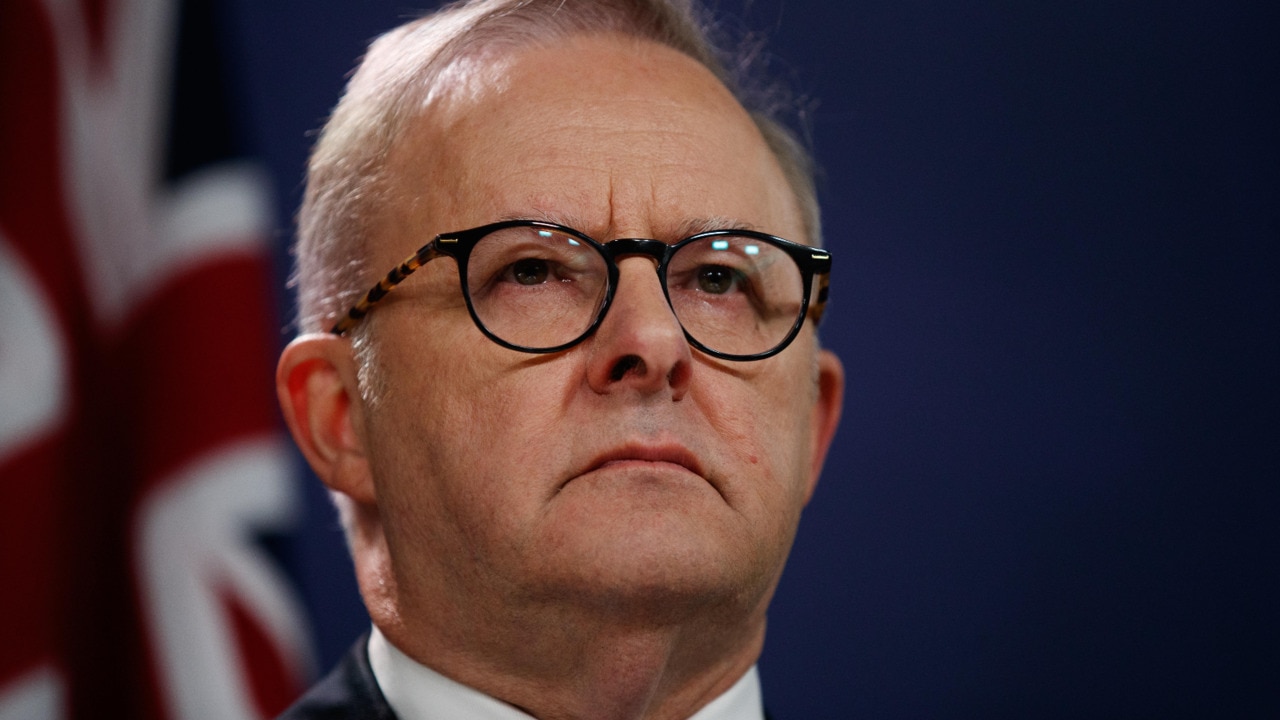
He said: “That’s why you’ve seen no criticism from the US” of Australia’s decision to send a handful of navy officers to a headquarters in Bahrain. There was “no engagement from the US administration with my government”. The same day Defence Minister Richard Marles acknowledged “well, there was a request in relation to the more than 30 members of the Combined Maritime Force for what contributions could be made”.
In fact, US Defence Secretary Lloyd Austin – a senior Biden administration cabinet official – led efforts to build an international coalition, visiting Kuwait, Bahrain, Qatar and Israel on December 20 to establish Operation Prosperity Guardian.
Albanese and Marles weren’t on Austin’s call list because the Biden administration had more useful allies to engage. Would a direct call from Austin have delivered a different outcome? That’s unlikely given the remarkable statement from Marles on December 21 that a team of 16 navy personnel in Bahrain “is proportionate to where we are in the world and the size of our Defence Force”.
The government’s defence of its inaction is that we have to concentrate all our military efforts in the Indo-Pacific region. This is a recent discovery. In October Australia deployed an E-7A Wedgetail early-warning aircraft and 100 personnel to Germany for six months supporting Ukraine’s supply lines from Europe.
On December 14 Penny Wong and Marles announced “Australia will extend and expand its commitment to the training of recruits from the Armed Forces of Ukraine”.
Ninety ADF personnel will train Ukrainians in the United Kingdom in 2024. This is the right call, reflecting an Australian strategic interest to support democracies threatened by authoritarian regimes.
The safety of maritime trade moving from the Suez Canal into the Red Sea and across the Indian Ocean is an even more obvious Australian interest. The Albanese government’s awkward attempts to deflect criticism for failing to join Operation Prosperity Guardian show a lack of understanding about how to strengthen the international community and the US alliance through practical co-operation.
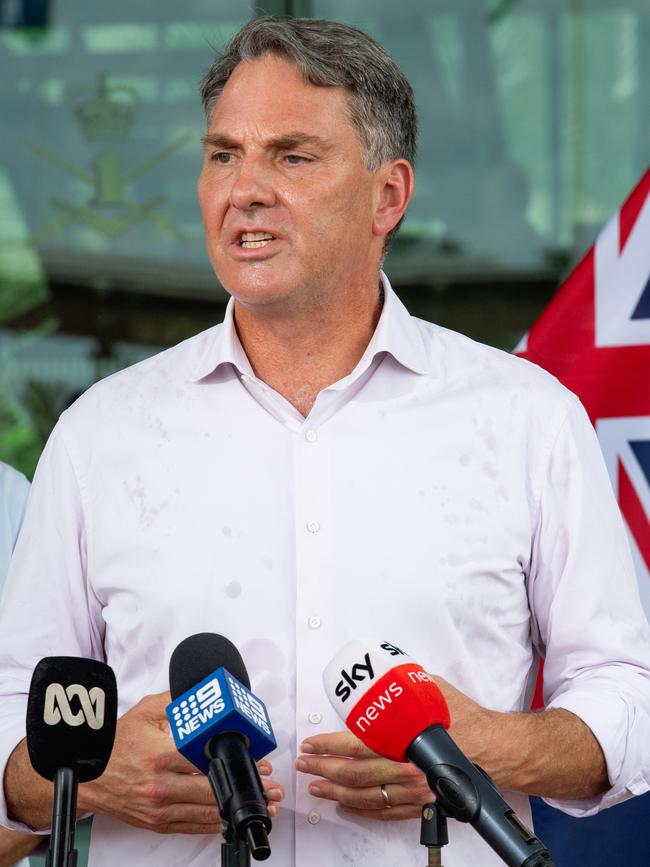
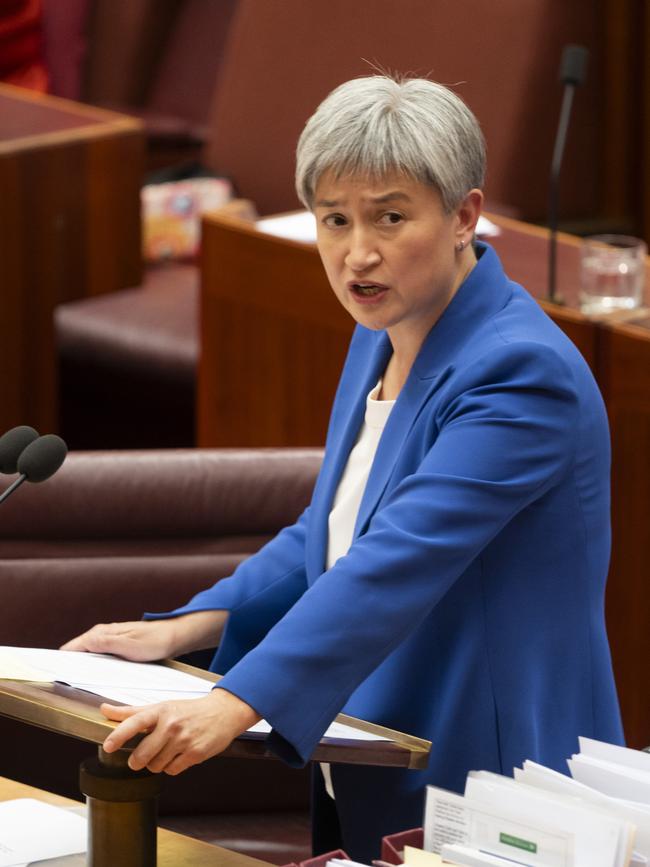
An even more bizarre story to emerge in late December was the apparent plan to dismantle and bury 46 retired MRH-90 army helicopters, acquired for $3.6bn and worth $20m each on the second-hand market. The helicopters were permanently grounded after a fatal crash in July, but they are still in service with a dozen military forces, including New Zealand, Spain, Germany, Italy, Belgium, Sweden, The Netherlands and France.
The best use for the MRH-90s would be to gift them to Ukraine, which desperately needs helicopters. On December 22 Richard Marles said: “We are looking at all the options available for maximising the value which sits within the Taipan fleet.”
An Australian government with a modicum of international imagination could team with European partners to give Kyiv the platforms and provide support.
Turning the MRH-90s into ground-fill may be the cheapest option for Defence but that would be a scandalous outcome not in keeping with “where we are in the world” – to use Marles’s words – by letting an opportunity go begging to help a besieged European friend.
Christopher Luxon’s first visit as New Zealand Prime Minister on December 20 was an opportunity to set new directions in a long underrated defence relationship. Luxon stressed Australia was his country’s “only ally”, expressing an interest in AUKUS “and the opportunities that may mean for New Zealand to participate”.
When Albanese was asked if Australia might push Wellington on AUKUS, he replied “what sovereign governments do is not push each other, they talk through issues and they co-operate”.
The leaders talked about promoting more interoperability for the defence forces without giving any sense that they understood the term. When Albanese was asked about where new co-operation might happen, he said: “There are areas of co-operation which are challenges to the globe, like artificial intelligence. How do we make sure that we keep ahead of those issues?”
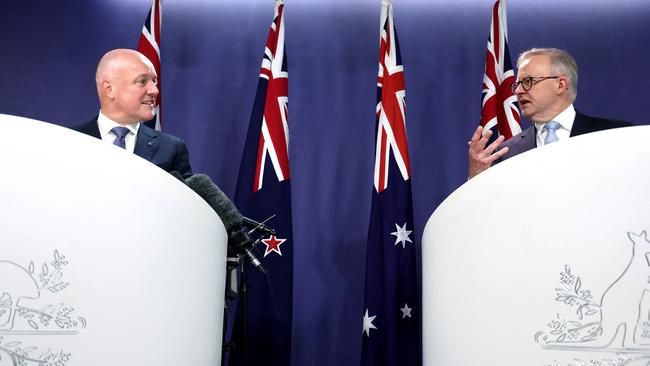
At best that might be a useful small-scale conversation. It’s clear then that there is nothing on the Australian defence agenda for New Zealand. How about a joint plan for both countries to replace their ageing Anzac frigates? Perhaps a joint Anzac battalion working on capacity-building with Pacific Islands? A shared Anzac effort to handover the MRH-90s with training support to Ukraine? Nothing so imaginative was on the table.
The day before meeting Luxon, Albanese delivered a keynote speech on his government’s foreign policy to the Lowy Institute 20th anniversary dinner in Sydney. It was a low-wattage performance reciting overly familiar lines about Australia and China – “co-operate where we can, disagree where we must” – and fantasies about the Middle East – “Gaza must not be used as a future platform for terrorism”.
Albanese committed “to act in the best tradition of Labor governments”, ironically without realising the best of Labor’s past foreign policy efforts brought energy, ideas and engagement. Where is that sense of push today?
Albanese’s speech brought underwhelmed applause. The approach to national security right now is low energy, low investment, small target and no imagination. China’s Global Times newspaper is happy, but the government is doing nothing to win friends, strengthen allies or deter enemies.


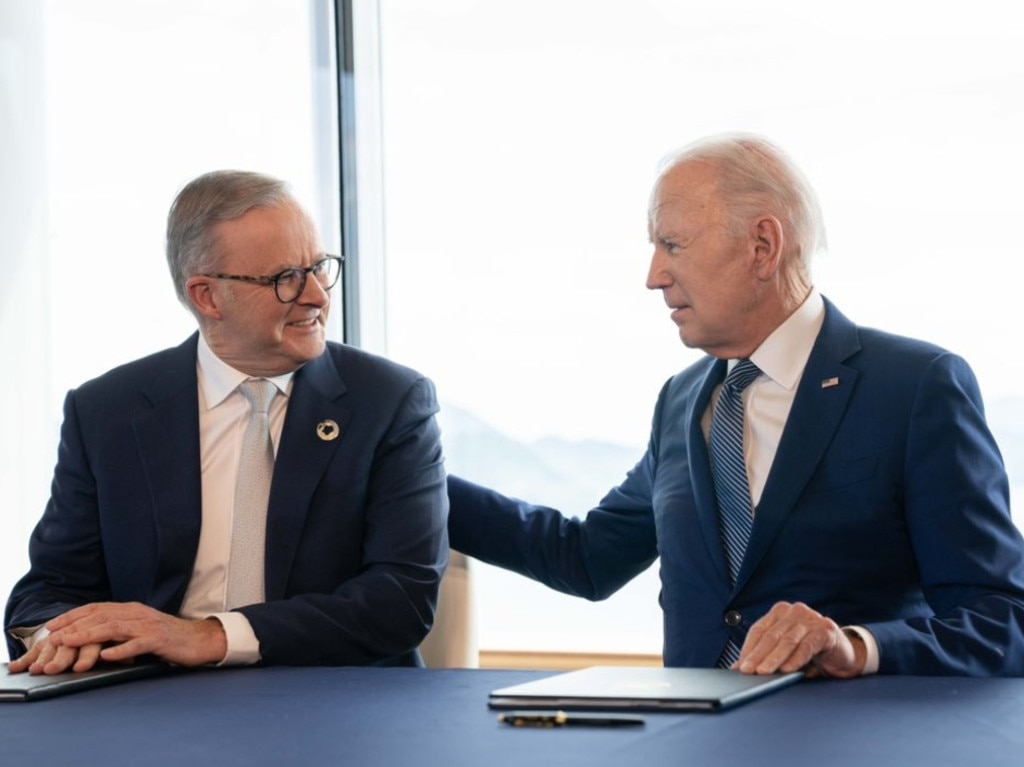
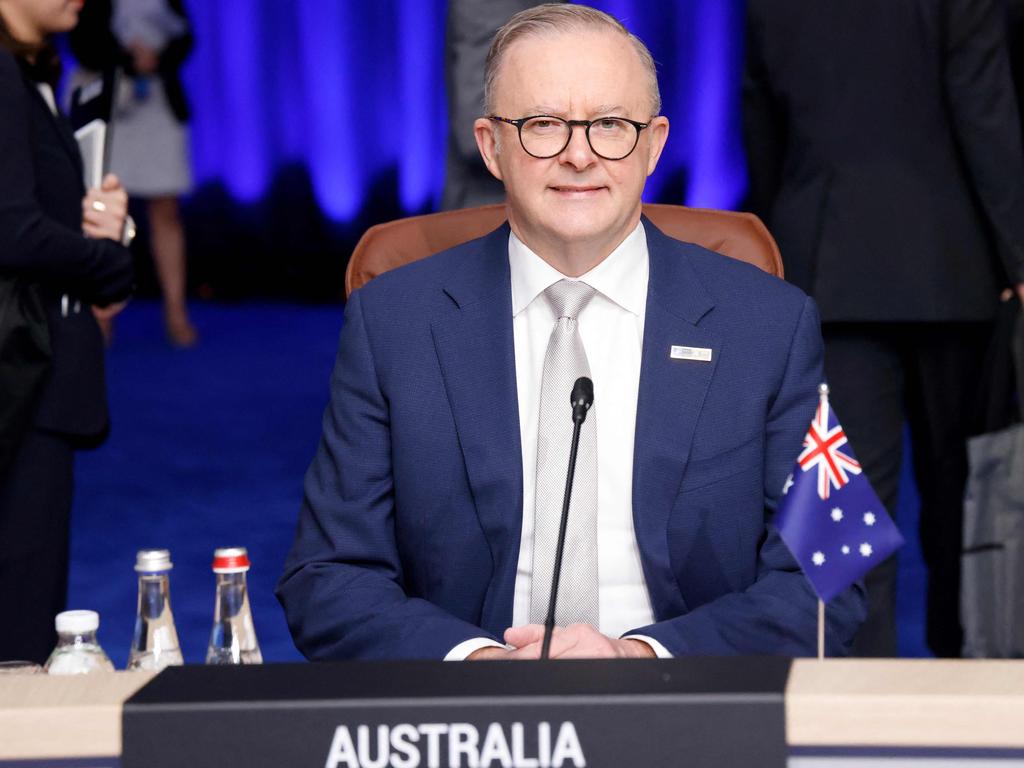
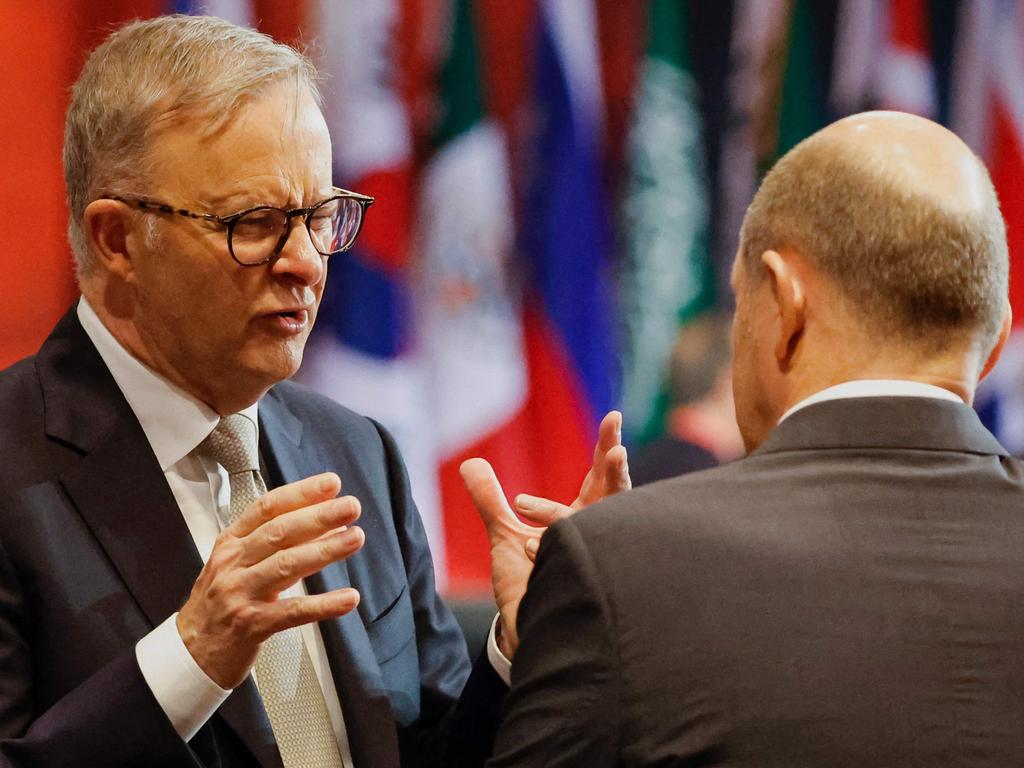
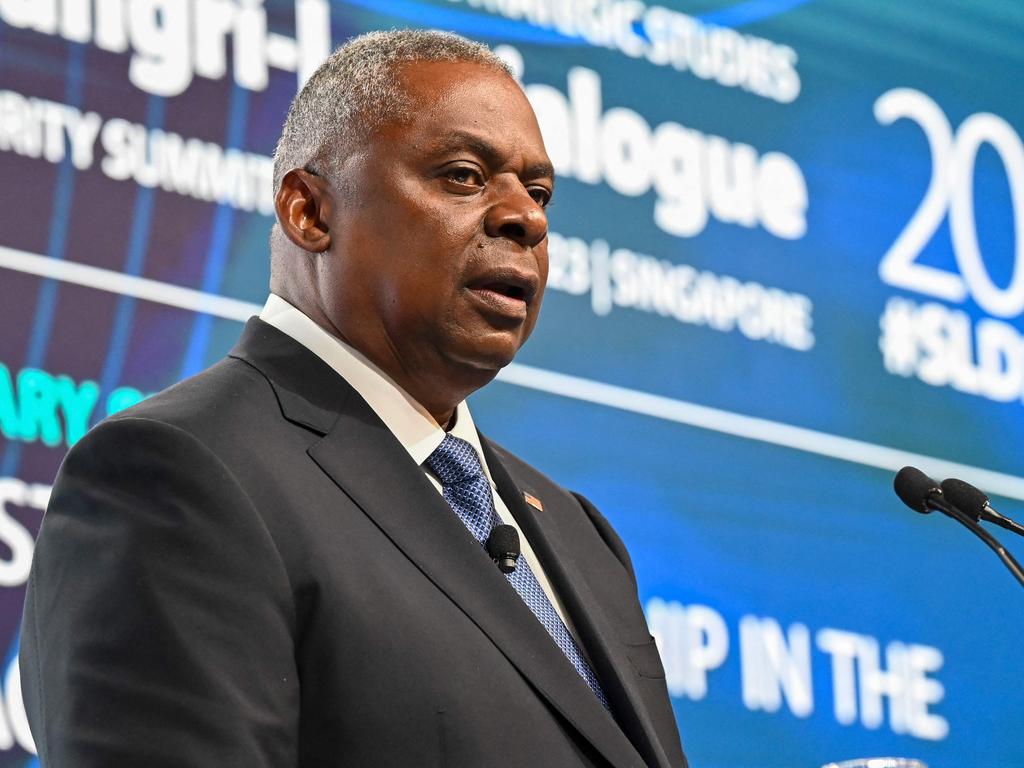


The Albanese government ends 2023 adrift on national security and foreign policy, like the HMAS Toowoomba in the Sea of Japan a few weeks ago, propellers snarled and hostile forces looming.